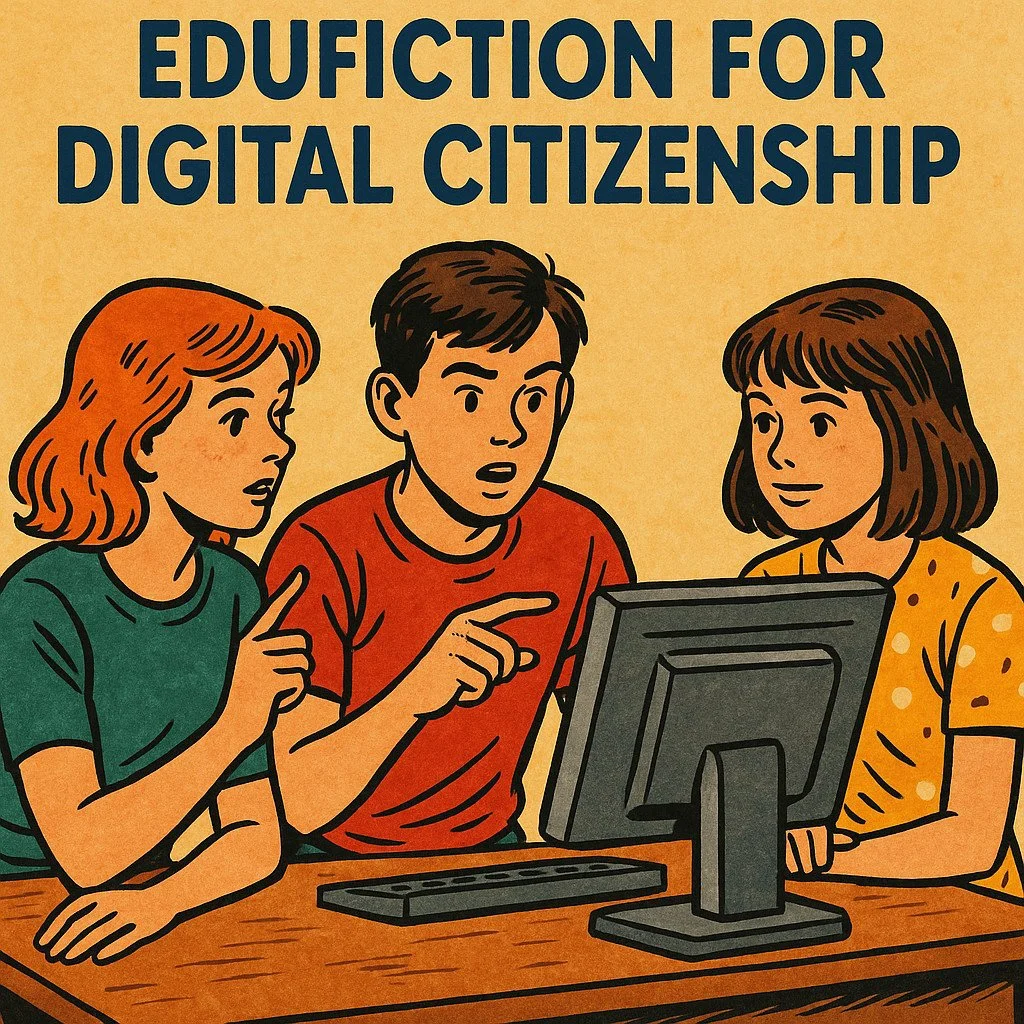Edufiction for Digital Citizenship: How Stories Like Cyber Secrets Prepare Kids for the Online World
In today’s hyper-connected world, young people are spending more time online than ever before. From streaming videos and gaming to messaging friends and completing schoolwork, the internet is deeply woven into their daily lives. But are they ready to navigate it safely, ethically, and responsibly? That’s where edufiction steps in—and it’s making digital citizenship more relatable than ever.
What is Edufiction?
Edufiction is an emerging genre that blends educational content with gripping storytelling. Rather than preaching rules or presenting dry lessons, edufiction embeds life skills and learning outcomes into compelling narratives. The result? Readers engage emotionally with characters while absorbing critical concepts that shape their behavior and thinking.
Why Digital Citizenship Needs a Story
Digital citizenship covers a broad range of topics—online safety, cyberbullying, privacy, digital footprints, ethics, and respectful communication. These are complex, emotionally charged, and sometimes abstract concepts, especially for middle-grade students. Fictional stories offer context. They allow students to witness consequences and growth in a way that feels real, without being preachy.
When children read about characters their age facing dilemmas like sharing passwords, oversharing on social media, or falling for online scams, they internalize the lessons more effectively than they would through traditional lectures. It becomes easier for them to think: "What would I do?"
Case Study: Cyber Secrets by Casper Pieters
One of the standout examples of edufiction is Cyber Secrets: A Digital Citizenship Adventure Story. The novel follows Team Savv-i, a diverse group of middle-schoolers who take on an ambitious mission to create their own digital citizenship framework while being watched by a rogue AI called Big-O. From hacking attempts and misinformation to ethical dilemmas and cultural misunderstandings, the story blends action and emotion with core digital citizenship concepts.
Chapters such as “Beam’s Trouble” and “Digital Communication” explore real-world consequences of tech missteps. Meanwhile, the mysterious AI character Zeno serves as both a mentor and a symbol of ethical AI use, sparking thoughtful discussions around emerging tech.
Other Books Doing It Right
Interland (by Google/Be Internet Awesome): This interactive adventure teaches internet safety and media literacy through gamified storytelling.
The Technology Tail by Julia Cook: A picture book that helps younger students understand digital footprints and cyberbullying.
Trudy Ludwig’s Titles (e.g., The Invisible Boy, My Secret Bully): Though not always tech-focused, Ludwig’s emotionally rich stories lay a foundation for empathy and communication skills crucial to digital life.
Chapter Discussion & Activity Example
To show how educators can integrate Cyber Secrets into learning, consider this activity from Chapter 1: "The Offer."
Discussion Questions:
Why does Beam dislike the term "Digital Citizenship"? What does his response tell you about how kids view online safety?
What early leadership tensions are seen between Beam and Bindi? How does this mirror teamwork online?
What does the term "Savv-i" represent, and how is it different from traditional rules?
Activity: The Pen Pal Project (Lesson plan from the Education Guide, Digital Access) Students create a pen pal profile from a remote community with limited internet access. Through letter exchanges, they explore how access to technology affects education, communication, and opportunities. This hands-on, empathy-driven exercise helps them understand the digital divide in a meaningful way.
Why Edufiction Works
Emotional Resonance: Kids care more when they care about the characters.
Contextual Learning: Complex topics like phishing or privacy are easier to grasp when part of a story.
Discussion-Ready: Edufiction is perfect for book clubs, classroom read-alouds, and parent-child conversations.
Final Thoughts
Edufiction doesn’t just entertain. It equips students with life-long skills to become thoughtful, responsible digital citizens. By embracing stories like Cyber Secrets, educators and parents can spark crucial conversations and make learning stick. In a world shaped by digital choices, let’s raise readers who are savvy, safe, and empathetic.
#Edufiction #DigitalCitizenship #CyberSafety #ParentingTips #LibraryLove #BookForTweens #TeachingTech #OnlineEthics #MiddleGradeReads #EmpathyInAction #CyberSecrets #21stCenturySkills #StoryBasedLearning #SafeOnline #TeamSavvi

